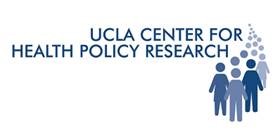UCLA–First 5 LA initiative aims to improve California’s low rates of child dental services
 An innovative program that serves low-income and uninsured children in Los Angeles, the UCLA–First 5 LA 21st Century Dental Homes Project, has more than tripled preventive dental visits for children from birth to age 5, according to a new policy brief by the UCLA Center for Health Policy Research.
An innovative program that serves low-income and uninsured children in Los Angeles, the UCLA–First 5 LA 21st Century Dental Homes Project, has more than tripled preventive dental visits for children from birth to age 5, according to a new policy brief by the UCLA Center for Health Policy Research.
Some parents think that because their children’s primary teeth, or baby teeth, naturally fall out, they don’t need to be cleaned and checked. However, the American Academy of Pediatric Dentistry recommends a first dental exam between eruption of a child’s first tooth and age 1. Preschoolers’ teeth also need to be brushed daily with fluoride toothpaste, according to the academy.
Dentists and public health experts have long understood the need for improved dental care for children. About half of children in the U.S. have not seen a dentist in the past year, according to the Agency for Healthcare Research and Quality. Data from Denti-Cal, California’s dental Medicaid program, show that in Los Angeles County, more than 530,000 children from birth to age 5 covered by Medi-Cal had not seen a dentist in the past year. A recent statewide survey by the Dental Health Foundation reported that more than 50 percent of California children have tooth decay by the time they enter kindergarten. And, according to 2014 federal data, California ranks seventh-lowest in use of preventive dental services by children enrolled in Medi-Cal and Denti-Cal.
“The majority of young children aren’t receiving crucial preventive and oral health services that they need,” said Nadereh Pourat, director of research at the center and co-author of the study. “Avoiding cavities in primary teeth promotes healthy teeth for the rest of their lives.”
Number of preventive procedures triple
Over a two-year period, the 12 health centers participating in the project increased the number of preventive visits for procedures such as cleaning teeth and applying fluoride in children up to 5 years old from about 3,000 to more than 10,000. They also doubled the number of visits for child dental treatments, such as filling cavities, and diagnostic services, according to the study.
“Oral health is an essential part of a child’s development and this program is key to supporting health systems to better meet those needs,” said Kim Belshé, executive director of First 5 LA. “The learning from this program will help to address barriers that limit children’s access to necessary dental services.” The project, begun in 2012 and ending this year, was funded by a $9.3 million contract from First 5 LA and the program is being evaluated by the center.
Project strategies used to overcome barriers include outreach to parents; improvements in clinic infrastructure; and training of child care workers, dental professionals and medical professionals to deal with the very young, sometimes squirmy and apprehensive patients.
All health centers involved in the UCLA–First 5 LA 21st Century Dental Homes Project offer dental and primary care services, making it easier for parents to schedule both medical and dental visits.
“Although the project served children in low-income areas, the methods it used to overcome barriers to delivering dental care can be applied universally,” said Dr. Jim Crall, professor and chair of the public health and community dentistry division at the UCLA School of Dentistry and lead author of the brief.
Barriers to child dental care and solutions
The project also focused on other barriers that limit children’s access to dental services, such as a dearth of Medi-Cal dental providers and a lack of confidence among dental providers in how to deal with young patients.
The UCLA–First 5 LA 21st Century Dental Homes Project remedied those problems by providing technical expertise; developing infrastructure; training medical and dental providers on how to deliver care to young children; developing training for child care workers to train parents; and more.
The clinics’ successes were celebrated on June 17 at an awards ceremony in downtown Los Angeles. During a keynote address, Carole D’Elia, executive director of the Little Hoover Commission — which recently issued a report on fixing Denti-Cal — congratulated project participants for improving care for young children in Los Angeles’ underserved communities.
Co-author Pourat said, “Improving oral health of young children is a complex challenge and requires a comprehensive approach.”
See the policy brief: An Innovative Project Breaks Down Barriers to Oral Health Care for Vulnerable Young Children in Los Angeles County
The UCLA Center for Health Policy Research is one of the nation’s leading health policy research centers and the premier source of health policy information for California. The Center improves the public’s health through high-quality, objective, and evidence-based research and data that informs effective policymaking. The Center is the home of the California Health Interview Survey (CHIS) and is part of the UCLA Fielding School of Public Health. For more information, visitwww.healthpolicy.ucla.edu.












